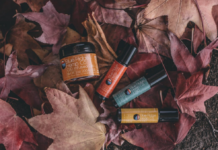CBD (cannabidiol), a non-intoxicating compound derived from the cannabis plant, has gained popularity among athletes for its potential benefits in aiding recovery and supporting overall athletic performance. As athletes seek natural alternatives to enhance recovery and manage post-exercise discomfort, CBD has emerged as a promising option due to its anti-inflammatory, analgesic, and neuroprotective properties. Here’s an exploration of how CBD may benefit athletic recovery based on current research and understanding.
Anti-Inflammatory Properties:
Inflammation is a natural response to exercise-induced muscle damage, contributing to soreness, stiffness, and decreased performance. CBD’s potent anti-inflammatory properties make it a valuable tool in reducing inflammation associated with intense physical activity. CBD interacts with the body’s endocannabinoid system (ECS), specifically targeting CB2 receptors found in immune cells and tissues. By modulating inflammatory responses, CBD helps mitigate tissue inflammation, promoting faster recovery and enhancing muscle repair processes following exercise.
Pain Relief and Muscle Recovery:
Muscle soreness and discomfort are common after intense workouts or sports activities. CBD acts as an analgesic, or pain-relieving agent, by interacting with receptors involved in pain perception and modulation. CBD’s ability to inhibit pain signaling pathways and reduce pain sensation may alleviate post-exercise soreness and enhance recovery by promoting relaxation and comfort. This can enable athletes to recover more quickly and resume training or competition with reduced downtime.
Enhanced Sleep Quality:
Quality sleep is essential for athletic recovery and overall performance. CBD has been shown to improve sleep quality by promoting relaxation and reducing anxiety, factors that can interfere with restorative sleep patterns. CBD interacts with serotonin receptors in the brain, promoting feelings of calmness and facilitating the onset and duration of sleep. By enhancing sleep quality, CBD supports muscle repair, immune function, and cognitive performance, optimizing recovery and readiness for subsequent physical activities.
Neuroprotective Effects:
CBD’s neuroprotective properties are of particular interest to athletes involved in contact sports or activities with a high risk of head injuries. CBD interacts with ECS receptors in the brain, modulating neurotransmitter activity and reducing oxidative stress and inflammation in neural tissues. This may help protect against brain injury and promote recovery from concussion-related symptoms by supporting neuronal function and reducing neuroinflammation.
Stress Reduction and Mental Well-being:
Athletic training and competition can be physically demanding and mentally taxing, leading to stress, anxiety, and performance pressure. CBD’s anxiolytic (anti-anxiety) effects may help athletes manage stress levels and improve mental well-being. By regulating serotonin and cortisol levels, CBD promotes relaxation, reduces stress-induced anxiety, and enhances mood stability. This can contribute to overall mental resilience, allowing athletes to maintain focus, confidence, and motivation during training and competitions.
Antioxidant Properties:
Exercise increases oxidative stress within the body, leading to the production of free radicals that can damage cells and tissues. CBD’s antioxidant properties help neutralize free radicals, reducing oxidative stress and protecting cells from damage. By scavenging harmful molecules and promoting cellular health, CBD supports recovery by enhancing muscle function, reducing inflammation, and minimizing oxidative damage associated with intense physical activity.
Application in Recovery Modalities:
CBD is available in various forms suitable for post-exercise recovery, including oils, capsules, creams, and balms. CBD oils and capsules provide systemic benefits by addressing inflammation and pain throughout the body, while topical CBD products can be applied directly to sore muscles or joints for localized relief. CBD-infused recovery products often include additional ingredients like menthol, camphor, or essential oils, which complement CBD’s effects and enhance therapeutic outcomes.
Regulatory Considerations:
Athletes should be aware of regulatory guidelines regarding CBD use in sports, as cannabinoid compounds are subject to varying rules and restrictions across different athletic organizations and competitions. While CBD is generally well-tolerated and non-intoxicating, athletes should prioritize using high-quality CBD products from reputable sources to ensure purity and compliance with anti-doping regulations.
Consultation with Healthcare Providers:
Before incorporating CBD into their recovery regimen, athletes should consult with healthcare professionals, particularly sports medicine specialists or team physicians, to ensure safe and effective use. Healthcare providers can offer personalized recommendations, monitor treatment outcomes, and address any potential interactions with medications or underlying health conditions.
Conclusion:
CBD shows promise as a natural supplement to support athletic recovery by reducing inflammation, alleviating pain, enhancing sleep quality, and promoting overall well-being. As athletes seek effective strategies to optimize performance and recovery, CBD’s anti-inflammatory, analgesic, and neuroprotective properties offer potential benefits in managing post-exercise discomfort and facilitating faster recovery times. With ongoing research and clinical studies, CBD continues to be explored for its therapeutic potential in sports medicine, providing athletes with a natural and holistic approach to enhancing recovery and maintaining peak performance.













